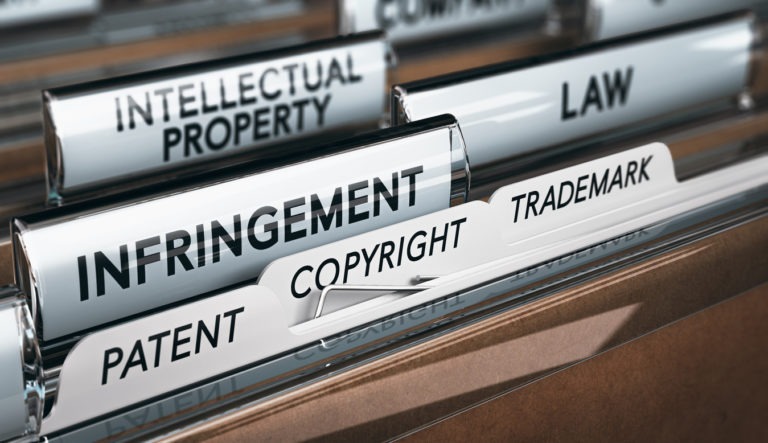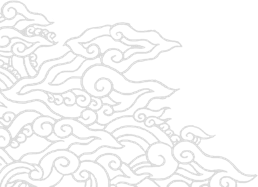Newsletter
10 October 2022
Introducing Intellectual Property as Collateral: A Breakthrough in Securing Loan for Financing Creative Economy


In the spirit of furthering the creative economy industry, the Government has recently issued Government Regulation Number 24 of 2022 on Intellectual Property-Based Creative Economy Financing.
| Rizki Karim and Michael Christopher
Background
In the last few years, Indonesia's creative economy industry has been on the rise.[i] However, one of the issues faced by many creative economy actors in this relatively newly established industry is the lack of supporting infrastructure, such as the limited access to financing and the lack of an integrated environment for marketing.[ii] Particularly, in relation to financing, one of the prominent issues is banks’ reluctance to accept intellectual property rights (“IPR”) as collateral to secure loans.
The possibility of IPR to be used as collateral has already been envisioned in Indonesian Law Number 28 of 2014 on Copyrights and Indonesian Law Number 42 of 1999 on Fiduciary Security. However, the absence of any implementing regulations remains a hinderance to creative economy actors in actual implementation of this mechanism. Thus, in the spirit of furthering the creative economy industry, the Government has recently issued Government Regulation Number 24 of 2022 on Intellectual Property-Based Creative Economy Financing ("GR 24/2022"), which will come into force on 12 July 2023.
GR 24/2022 acts as the implementing regulation of the previously promulgated Law Number 24 of 2019 on Creative Economy ("Law No. 24/2019"). According to Law No. 24/2019, the government’s role is to support and develop the creative economy ecosystem,[iii] particularly with respect to facilitating financing, and providing infrastructure and marketing system.[iv] In that line, pursuant to GR 24/2022, there are 6 (six) major governing limbs to further the creative economy industry, namely:
Creative Economy Financing – IPR as Collateral for Loans
Whereas previously there was no specific law regulating financing in the creative economy, GR 24/2022 now serves as a breakthrough instrument to solve the financing problems faced by many creative economy actors. Generally, there are two viable financing schemes for the creative economy, as governed under GR 24/2022: (i) schemes executed by financial institutions, either bank or non-bank; and (ii) alternative schemes. Previously, business actors have found it difficult to secure bank financing due to the requirement to provide collateral security, as banks would rarely accept IPR as collateral (despite existing regulations). Thus, to ease the process of bank financing schemes, GR 24/2022 now further governs IPR as a collateral to secure loans, in the forms of:
Under GR 24/2022, only IPR that are managed (commercialized) individually or by a third party, and those that are registered with the Ministry of Law and Human Rights, are eligible to be used as a collateral to secure loans. GR 24/2022 also governs the methods to assess the value of an IPR by utilizing a certified appraiser or panel of appraisers,[v] inter alia through cost approach, market approach, and profit approach, all of which are non-exhaustive and open to other viable approaches in accordance with the recognized standards in the industry.
Intellectual Property-Based Creative Economy Marketing System
Creative economy actors will be able to utilize the marketing system facilitated by the government to further their businesses. As mentioned previously, one of the main issues in the creative economy industry is the lack of a marketing ecosystem to promote businesses, especially for micro, small, and medium enterprises (usaha mikro kecil menengah / UMKM).
GR 24/2022 facilitates creative economy actors through a marketing system, based, inter alia, upon: licensing, franchise, transfer of technology, collaborations (jenama bersama) and transfer of rights. The government will provide an integrated marketing system, where eligible creative economy actors will be given technical assistance for their business needs, such as legality/licensing, intellectual property registration and management, financing, information services, and marketing incubation.
One of the interesting features brought by GR 24/2022 is the digital collective management system, whereby the creative economy can access assistance for product inventory, marketing platforms, and priority in government procurement. Although GR 24/2022 has yet to come into force, the government has already run a similar marketing program called "Beli Kreatif Lokal", supporting 500+ creative economy actors who were impacted by the Covid-19 pandemic. GR 24/2022 intends to continue and create a permanent, publicly accessible, program in furtherance of the creative economy industry.
Creative Economy Infrastructure
There are two types of infrastructure support that will be provided by the government. First, physical infrastructure will be provided in the form of exhibition space, training space, and creative space.[vi] Creative economy actors then can use these physical infrastructures to showcase their products, all aligned with the intellectual property-based creative economy marketing system. Secondly, in terms of information and communication technology infrastructure, the government will facilitate creative economy actors by providing technology to prepare, collect, process, analyze, store and announce information relating to their creative economy business' products.[vii] In providing the above-mentioned facilitation, the government can establish a technical work unit on its own or in partnership with third-party private entities.
Incentives for Creative Economy Actors
Prior to GR 24/2022, the government has been providing incentives to micro, small, and medium enterprises (usaha mikro kecil menengah / UMKM), through the Ministry of Tourism and Creative Economy‘s existing Government Aid Incentive (Bantuan Insentif Pemerintah). Through that program, fiscal incentives up to Rp 200 million Rupiah were accessible to businesses.
GR 24/2022 further eases the burden of the creative economy actors in doing business, whereby now incentives are provided in both fiscal and non-fiscal forms. The government has also expanded the scope of its fiscal incentives: now not only limited to cash provision, but also in the following forms:
Now, non-fiscal incentives can now take place in simplified forms, such as import and export of raw materials and supporting materials for the creative economy; ease of access for place of business; ease of business licensing services; ease of registering intellectual property rights; assistance and incubation for creative economy business actors; and ease of access to legal assistance.
Government's Responsibility and the Role of Society
As mentioned, the government has taken the responsibility to further develop the creative economy industry, particularly relating to the intellectual property-based financing schemes as well as the marketing system. These responsibilities will be carried out by the government through a Public Service Agency (Badan Layanan Umum). This Public Service Agency will assist the creative economy actors in procuring the required products and/or services to run their businesses, all without taking a profit. The system in which the Public Service Agency operates will also involve various stakeholders, ranging from private parties, communities, educational institutions, as well as the medias.[viii] GR 24/2022 also encourages the society to take part in the development of the creative economy industry by way of supporting domestic creative economy sectors as well as by preventing any alleged IPR infringement.
Financing of Dispute Resolution
GR 24/2022 also governs dispute resolution fora, which can be pursued in the event of any dispute arising out of the intellectual property-based financing schemes. Both court litigation and alternative dispute resolution are available to resolve disputes under Art. 40 GR 24/2022. Only alternative dispute resolutions approved by Financial Services Authority (Otoritas Jasa Keuangan) can be pursued to resolve disputes between a lender and a financial institution. This is subject to Financial Services Authority Regulation Number 61/POJK.07/2020 on LAPS SJK. However, disputes which do not involve a financial institution as the lender are not barred by lack of OJK's approval. Additionally, GR 24/2022 allows for online alternative dispute resolution, insofar as parties may agree thereto.
For our specific guide on LAPS SJK, please head to our website and see: (https://www.karimsyah.com/newsletter/laps-sjk).
Disclaimer: The content above is intended to provide a general guide to the subject matter, and should not be treated as legal advice. For more information on the subject matter, please feel free to contact us at rizki.karim@karimsyah.com or michael.christopher@karimsyah.com.
[i] Creative Economy (Ekonomi Kreatif) is the embodiment of intellectual property's added value from creativity based on cultural heritage, knowledge, and technology (Art. 1(1) Law No. 24/2019 jo. Art. 1(1) GR 24/2002)
[ii] General Elucidation Law No. 24/2019 jo. General Elucidation of Indonesian GR 24/2022.
[iii] Art. 9 Law No. 24/2019.
[iv] Art. 10 Law No. 24/2019.
[v] Art. 12(2) GR 24/2022.
[vi] Art. 32(2) GR 24/2022.
[vii] Art. 31(2) GR 24/2022.
[viii] Art. 37 jo. 38 GR 24/2022.
